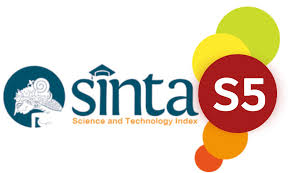Pedagogic Register: An Analysis of Online Classroom Interaction During Covid-19 Pandemic
DOI:
https://doi.org/10.37253/iallteach.v3i2.5363Keywords:
Classroom Interaction, Pedagogic Register Analysis, Pedagogic RelationsAbstract
The current pandemic has changed all aspects of life, including education. Some of the changes are the time and place of teaching due to the pandemic forcing the teaching and learning process to shift to online platforms (Zhao, 2021). As a result of these changes, the interaction between teachers and students in a classroom is also affected. By employing descriptive qualitative design, this research focused on analyzing classroom interaction in an online classroom during COVID-19 pandemic. The data were collected through observation. To analyze the data, David Rose’s pedagogic register analysis (2014, 2018) was employed. The findings showed that online classroom interaction revealed the relation between teacher efficacy and students’ positive attitudes. Then, it also showed that 21st-century skills impacted teacher’s adaption of teaching materials. Last, online classroom interaction also showed the consistency of teacher roles both in offline and online classes.
Downloads
References
Brock, C. A. 1986. The effects of referential questions on ESL classroom discourse. TESOL Quarterly 20(1), 47-59.
Christie, F. (2002). Classroom discourse analysis : a functional perspective / Frances Christie: London : Continuum, 2002.
Damayanti, I, L., 2019. Cerita (stories): A pedagogical model for teaching story genres to lower secondary school students in Indonesia (unpublished doctoral dissertation). University of Wollongong, Australia.
Havwini. (2019). Investigating the interaction patterns in efl virtual classroom: a case study. Advances in Social Science, Education and Humanities Research, 377, pp 192-196.
Helfrich, J. (2014). Creative Spaces: Flexible Environments for the 21st-Century Learner. Knowledge Quest, 42(5), 76.
Jones,P., Matruglion, E., & Rose, D. (2021). Investigating pedagogic discourse in late primary and junior secondary English. In P.T. Jones, E. Matruglio & C. Edwards-Groves (eds.), Transition and continuity in school literacy development. London: Bloomsbury
Ling, C., & Zheng, B. (2015). Teaching practices and teacher perceptions in online world language courses. Journal of Online Learning Research, 1(3), 275–304.
Martin, J. R. (1992). English text: system and structure: Philadelphia : John Benjamins Publishing Company, 1992.
Nunan, D. (1993). Introducing discourse analysis. London: Penguin English.
Rose, D. (2014). Analysing pedagogic discourse: an approach from genre and register. Functional Linguistics, 2, 1-32.
Rose, D. (2018). Pedagogic register analysis: mapping choices in teaching and learning. Functional Linguistics, 5(1), 3. doi:10.1186/s40554-018-0053-0
Saswati, S. (2018). Analysis of classroom interaction using IRF pattern: a case study of efl conversation class. Scope: Journal of English Language Teaching, 3(1), pp 29-37.
Sethy, S. S. (2008). Distance education in the age of globalization: An overwhelming desire towards blended learning. Turkish Online Journal of Distance Education, 9(3), 29–44. https://doi.org/10.17718/tojde.04460
Sinclair and Coulhard. (1975). Toward the analysis of Second Language Classroom. Oxford: Oxford University Press.
Tsui, A.B.M. 2008. Classroom discourse: approaches and perspectives, in Cenoz, J., & Homberger, N.H. (Eds), The Encyclopedia of Language and Education (Vol. 6: Knowledge About Language. New York: Springer, 261-272.
Ware, P. (2005). "Missed" communication in online communication: tensions in a German-American telecollaboration. Language Learning & Technology, 9(2), 64-89.




.png)






